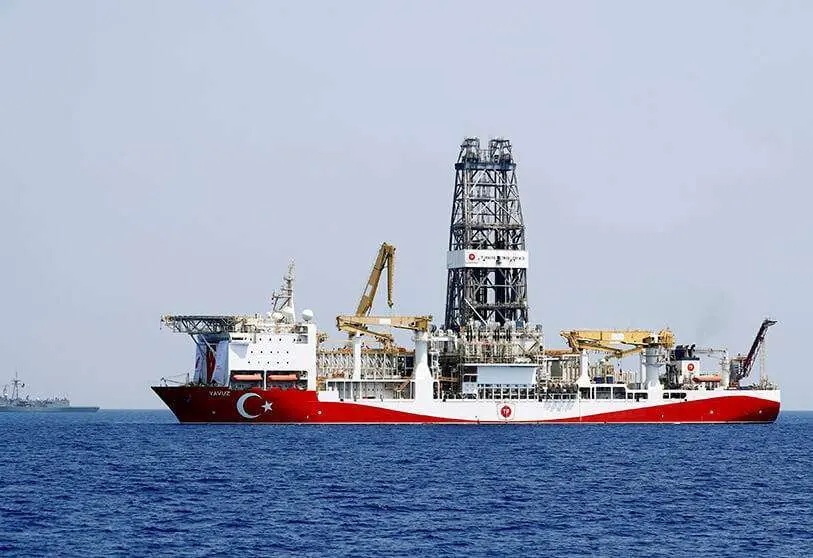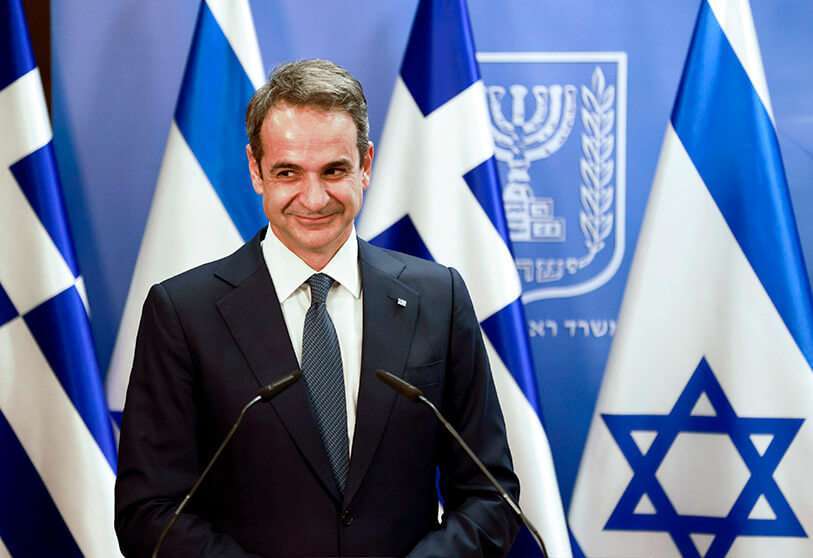Tension escalates between Turkey and Greece in the Mediterranean

Turkey has announced that its naval forces will carry out "large-scale" military exercises in the Aegean Sea between 25 February and 7 March. The manoeuvre, dubbed 'Blue Homeland 2021', will include up to 87 warships, 27 aircraft and around 20 helicopters and drones, according to defence ministry sources.
Turkish Air Force units, the Coast Guard Command and the General Gendarmerie will also take part in the exercises, the ministry added. The main objective is to assess the capabilities and readiness of Turkish navy units. The activities will include mock attacks and clashes in a scenario that will try to simulate "real operational conditions".
The announcement comes two days after Ankara denounced Athens for "harassing" a Turkish research vessel in the Aegean Sea. Up to four Greek F-16 fighter jets reportedly harassed the TCG Cesme west of the Greek island of Lemnos. One of them reportedly fired a type of flare used to deceive enemy radar at a distance of 3.7 kilometres from the ship, according to Turkish defence ministry officials.
Turkish Defence Minister Hulusi Akar said Turkey responded with the "necessary retaliation according to the rules", adding that "while we are doing scientific work, harassment is not right. It does not fit in with our good neighbourly ties". The Greek air force was conducting an exercise in the Aegean Sea at the time, but the Greek defence ministry said its aircraft were not near the Turkish ship and denied carrying out any retaliation.

Turkey had sent the research vessel into international waters in the Aegean until 2 March to conduct hydrographic surveys. Greek authorities had protested the deployment, arguing that it ran counter to the spirit of renewed dialogue between neighbouring nations and Turkey's efforts to improve relations with the European Union.
This new escalation of tensions hampers the path of dialogue reopened on 25 January. After five years without diplomatic relations, Turkey and Greece met again in Istanbul to delimit maritime zones in the Aegean and define rights to energy resources in the eastern Mediterranean. Up to March 2016, they had met a total of 60 times without success. The failed coup attempt in Turkey undermined the progress acknowledged at the time by Greek Prime Minister Alexis Tsipras.
However, Erdogan's continued militarisation of the area has weakened dialogue positions. At the last summit, both sides decided to continue talks despite Turkey's earlier announcement of the launch of a new research vessel. The EU then threatened sanctions, but Ankara's change of position rehabilitated the conditions for an agreement.
The next meeting is still on the table and will take place in Athens, as the members of the talks acknowledged. Still without a concrete date, Turkey is expected to redirect its relations with the West. Firstly, to reduce the economic damage imposed by sanctions, secondly, to achieve a series of improvements in the customs union and visa liberalisation facilities. Finally, to make a fresh start in its relations with the White House after Biden's arrival.

Meanwhile, the Greek government approved a 57 per cent increase in the defence ministry's spending. Greece's military budget has reached 5.5 billion euros. "Never before has such a complex and important military programme been carried out so quickly and efficiently," said Prime Minister Mitsotakis, adding that the government's plans also included the acquisition of new frigates, helicopters, drones, the upgrading of the F-16 fleet and the recruitment of 15,000 additional troops.
This decision was accompanied by the prime minister's announcement of an agreement with France for the purchase of 18 Rafale fighter jets worth 2.45 billion euros, as well as the spending of 1.4 billion euros to establish a new flight school run by Israel, among others. These multi-billion dollar deals have led Greece to strengthen its military and improve strategic relations with supplier countries. Moreover, Athens is sending a warning message to Ankara to curb its aspirations.










